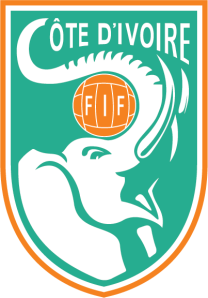
Several years ago, while I still studied at Virginia Tech, I made an association between the collectible card game Magic: The Gathering and the Keirsey temperaments of Myers-Briggs typology. I found that the flavor of each one of the five colors of magic correlated to one of the four temperaments of the MBTI. Now, I know that four does not equal five, but it made perfect sense to me that a rational competition based in a fantastic world would appeal to NTs enough that they could happily support two colors. I broke the NTJs off to the more ordered blue magic and the NTPs inhabited the more chaotic black magic. For the other three temperaments, I placed the SPs with red magic, the NFs with green magic, and the SJs with white magic. I remember writing a blog post about my discovery and I even created a Facebook quiz that used MBTI type questions to help people discover their preferred color of magic. Unfortunately, those works have become lost to the archives of Xanga and Facebook, respectively.
For Christmas, my wife received the first book in Veronica Roth’s Divergent trilogy. We both tore through all three books in the span of a week, often competing over who got to read the book next. Roth writes a thrilling tale that often struggles with hard ethical questions, never shying away from real life. She creates conflicted characters and places them a rich world with a unique, well-developed culture. I enjoyed Roth’s creation of five factions, each with their own personal goals, mores, and values. The five factions – Candor, Dauntless, Erudite, Amity, and Abnegation – quickly reminded me of my prior connection between the MBTI and Magic.
I have always appreciated the MBTI compared to other personality tests, especially the Big Five, because the MBTI does not make value judgements about the types. For instance, intuition in the MBTI correlates highly with Openness to Ideas in the Big Five personality measurement. However, the MBTI does not suggest that sensing types have a deficiency while the Big Five would say those without Openness do. We have differences, but that does not make one person better or worse. I think Roth would agree with this sentiment. We have genetic differences, but that does not mean some people possess pure genes and others are damaged.
Furthermore, our inborn personalities represent the hardware on which we build our lives, but we add a multitude of unique experiences and environments to our base personality. We maintain the free will to make independent choices. This can provide two people with the same personality with vastly different outcomes. As such, a person can see the benefits of a different color of magic than their own. More importantly, a person can choose a faction that differs from the ideal one for their type. Perhaps, they feel compelled to stick with the faction they grew up in. Perhaps, they need a change, having spent 16 years with the drawbacks of the faction of their birth. Thus, while a greater percentage of SPs will likely land among the Dauntless, not all SPs will choose Dauntless and not all Dauntless will type out as SPs. As with the Hogwart’s Houses, I simply aim to find the most likely home for each temperament. We all retain choice.
I have tried to limit spoilers, but I still urge you to read the books before continuing.

Candor – Black Magic – NTP
As an ENTP, I should begin with the color and faction that I know the best. At first appearance, black magic and Candor might not seem that similar with the way black magic prefers to slink through the shadows while the Candor aim to shine the light truth into all the dark corners. I believe that the two groups show us at our best and our worst.
NTPs often possess an amorality. We don’t actively seek to hurt others, the thought just never enters the equation in our search for knowledge and perfect efficiency. Morality makes no impact one way or the other. This allows the black mage to delve into the depths that others would shy away from. He deals with vampires and demons. He raises the dead from their shallow graves. He sacrifices his own life force in the search for knowledge, the search for truth, the search for power.
Candor too recognizes this basic selfishness in the heart of every man. To keep from hurting each other, we must lay all our cards on the table. If we maintain complete honesty, if we take our ulterior motives from their hiding places, then we can avoid conflicts. Our competition for knowledge and power becomes an honorable game rather than assassins in corners. Truth makes this game of life equal for everyone and we find it much more acceptable if we lose under such circumstances. I don’t mind if you honestly beat me. Just don’t stab me in the back.
It also helps the Candor that our amorality leaves us without any sense of shame. It does not matter if we know each other’s darkest secrets because we all exist as broken and selfish people. Let’s just get it all out on the table. In fact, I have often used my radical honesty for my own entertainment. Like the Candor, I love a good debate and I have often tossed out statement grenades, honest truths about myself or the world, to see how people react once I have shattered their fragile political correctness. I am much more comfortable with the initial chaos of truth than the slow inefficient oppression of manners.
While I prefer a bit more color in my attire from time to time, I do own a sizable amount of black clothing. Black represents the never ending search for truth, the prying of secrets from dark mystery. No wonder the black mage in his dark cloak and the Candor lawyer in his black and white suit prefer such trappings.
In Magic: The Gathering, a deck cannot stand on the the power of one color. You may have all of the strengths of black, but you also have all of its weaknesses. For efficiency’s sake, most mages pare their deck down to two or, at most, three colors. Certain colors tend to work better together than others.
In similar fashion, I find that each temperament has an ideal faction, two factions that fit certain aspects of their personality, and two factions that confuse or intrigue that particular faction with their stark differences. NTPs seem particularly well suited for Candor. NTPs who desire more than just truth, those who desire a technical knowledge of how things work, a purer know-how, will feel drawn to the Erudite. NTPs who seek more than just idle words but wish to enforce truth more than just discover it will seek out the experiences of the Dauntless. NTPs often have an experience addiction. We constantly seek novel truths. To the outsider this often looks indistinguishable from the adrenaline seeking personality of the SP. The NTP questions the motives of the Amity and the Abnegation. Believing that all people act from selfishness, we see the true altruism of those two groups as an illusion. If one submits his will to the needs of someone else or the needs of the many it can only lead to resentment and deception.

Erudite – Blue Magic – NTJ
I have some familiarity with the Erudite. I did well in school and participated in the gifted program and a Governor’s School during my time in public education. I have a bachelor’s degree in psychology and history. I studied graduate sociology and eventually received my Masters in English. I found that the higher I went the more knowledge obscured the truth and prevented actual action in reality. The scholar becomes more and more focused in a smaller and smaller arena of data. It seemed intellectually incestuous. I imagine that a true Erudite would not share my misgivings.
NTJs search for knowledge so that they can better order and control their environment. Blue magic seeks that same power of control and manipulation. Blue does much to slow the game down, countering opponents spells and reducing the number of cards in an opponents hand or deck. Conversely, the blue mage constantly adds to his own base of knowledge by adding cards to his hands and stealing his opponents creatures. The blue mage derives his power from the tides of the great oceans and the winds of the air and he seeks to control those very elements.
Similarly, the Erudite seek a greater knowledge so they can control the forces of nature. They provide much of the technology that the Amity use to farm and feed the rest of the city. However, that same desire for control often pushes the Erudite to clash with the Abnegation for political control of the city and leads them to manipulate the other factions behind the scenes. The Wizards of the Coast website has a great description of the full capacity of blue magic, but it works just as well for the Erudite: “At their best, blue mages [and Erudite] are inventive and progressive. At their worst, blue mages [and Erudite] are manipulative and treacherous.”
The blue mages and Erudite share symbols. The Erudite wear blue clothing as they believe it produces the calm emotional state most ideal for rational thought and learning. Keirsey noted that all NTs seek calm as our preferred emotional state. A clear head provides access to our greatest resource. Also, the Erudite use the bowl of water as their symbol during the choosing ceremony. The NTJ believes that with enough patience, knowledge, like a small drip of water, can erode stone and get to the very heart of truth and power. With enough time, water can accomplish great feats.
While NTJs would most readily join Erudite, they would likely feel an affinity towards Candor and Abnegation as well. Candor displays the same search for knowledge and truth. Abnegation believes that self-denial leads to order. NTJs already deny their emotional response so they can achieve greater clarity in the search for the most rational outcome. A more religious NTJ might find the Abnegation particularly attractive.
The NTJs would have more difficulty understanding the values of the Amity and Dauntless. An NTJ would find the collective agreement of the Amity incredibly inefficient. I doubt they would see their decision-making system as anything more than mob rule. The NTJ would find the thrill-seeking of the Dauntless a foolish and pointless action. Much like the science nerd and bookworm, to the NTJ the Dauntless would appear as nothing more than dumb jocks.

Dauntless – Red Magic – SP
I have felt an attraction to the free lifestyle of the Dauntless from a very young age. My earliest heroes included cool and composed athletes like quarterback Joe Montana. I threw my body around in little league football as I tried to emulate them. The athletes would eventually have to share the stage with hedonistic and revolutionary rock stars as my love of music developed throughout my teens. In my youth I loved a chaotic mosh pit. I joined the United States Army Infantry out of high school and served in Afghanistan and Iraq. I have four tattoos and counting and I even considered a septum piercing for a fleeting half second. There is an honesty in the individual freedom of the Dauntless. It is far from certain that I would choose the Candor over the Dauntless if given the chance. The agency of the Dauntless might provide the best chance to pursue justice and truth.
SPs love red magic as much as I do. I always enjoyed “burn” decks, decks full of lightning bolts and fire balls and other direct magics that instantly dispatched a creature or opponent as soon as they started to annoy me. Goblin decks allowed me to overrun my opponent with a number of quick, cheap creatures. Red magic erupts from passion and spontaneity. SPs feel that same need for action. They seem happiest when indulging their desire to move and change the world around them, in those moments when they can feel the adrenaline course through their bodies.
The Dauntless would welcome the athletic nature of the SPs. Many SPs would find great joy in tossing themselves from moving trains and high buildings, in constantly practicing the martial arts, and even the rush of facing their darkest fears. Like a shark, SPs feel most alive in constant action. The SP would also most readily approve of the Dauntless lifestyle. For the SP, every moment is a game or competition and they love to entertain whether through a smart quip or a flashy tattoo. The pain and pleasure dichotomy of getting tattooed fits right in with their personalities.
Red magic shares the symbol of fire with the Dauntless. While the red mage uses fire as a powerful force of destruction, the Dauntless pledge their faith to the burning coals of passion and action at the faction choosing ceremony. Red mages draw their power from the lava and stone of the highest mountains. Dauntless headquarters exist in a steep, rocky cavern surrounding a chasm. The Dauntless test themselves by ascending the highest structures. Trees, ferris wheels, the Hancock Building: the Dauntless have challenged them all.
SPs, especially the more feeling types, might also feel drawn to Amity. They would enjoy the manual labor, the action of plowing fields, picking fruit, and repairing farm machinery. They would likely make great musicians, plucking their banjos and dancing through the fields. For the SP, Amity might offer an extended camping trip or a long backyard cookout. Other SPs, especially the thinking types, could prefer Candor. The STPs I know have a knack for saying exactly what they think or observe with a complete obliviousness to social custom and manners.
The SPs would have more difficulty with the Erudite and the Abnegation. How can an Erudite keep their nose entirely in a book when mountains stand out there begging for climbers? As the most hedonistic of the temperaments, SPs tend to deny themselves nothing. I think they would soon grow weary of the stiff and uneventful lifestyle of Abnegation.

Amity – Green Magic – NF
I have affection for those most likely to choose Amity. My mother, sister, wife, my other best friend, and a number of our closest companions are all NFs. I admire their diplomacy and creativity. They make my world a better place to live in. I even admire the Amity lifestyle. It seems wholesome to throw your back to the plow, lose yourself in your work and enjoy good friends and a good meal at the end of the day. However, I know I could never live that lifestyle myself. Even when I try to focus on a more elegant habit, my mind wanders to adventure and the more complex questions of the world. In their desire for consensus, the Amity would stifle my well-crafted individualism.
The NF’s personality mimics the ebbs and flows of green magic. Green magic emanates from the harmony of nature. It represents the growth of forest, jungle, and animal and the peace of creatures connected to the land like the elves. NFs seek growth and harmony in their relationships and communities. An NF mother wants nothing more than to see her children and grandchildren grow into healthy, emotionally stable adults. Like nature, NFs also fiercely defend their own. If an NF sees someone attacking their friends, family, or most closely held values, they can unleash a fury on their enemies like a hurricane force wind or a stampede of buffalo. Though the current incarnation of Amity in Divergent attempt complete non-intervention, I find it interesting that their original manifesto included a paragraph for the active defense of a friend that they later deleted. This protection of their own is an honest NF trait.
NF would merge easily into the Amity lifestyle. They would feel refreshed by the open space of the fields and they would find purpose in bringing growth to the environment. They would find deep significance in the personal, relationship-based religion of the Amity and total comfort in the consensus-based decision making process of the faction. Everything, from the earth to the relationships feels organic and wholesome to the idealistic NF.
The green mage and the Amity share the symbols of earth and tree. More than any other mage, the green mage derives his power from the life-giving earth. The many creatures he summons find sustenance and protection under the trees of the forest. Amity sees these same benefits. They ask their initiates to pledge their blood to the bowl of earth at the faction choosing ceremony and they use the blossoming tree as their sigil.
The NF might also feel comfortable in Abnegation or Dauntless. The NFJ especially might take comfort in the ordered, simple life of the Abnegation while helping the poor and downtrodden in a more active way. The NFP might prefer Dauntless and an opportunity to actively defend his or her people, a crusade for justice, a hard fought peace.
The NF would have more difficulty feeling happy in Erudite or Candor. Though they might find certain members of those factions attractive, they would see the pure rationality of the Erudite as cold and devoid of humanity. The radical honesty of the Candor would also seem a step too far when a white lie or a diplomatic word could avoid conflict and bring a community closer together.

Abnegation – White Magic – SJ
I have the greatest difficulty understanding why anyone would choose the Abnegation lifestyle, but like many NTs, I have difficulty communicating with SJs. I have found SJs to be, at their best, curiosities from my point of view. At their worst they seem to obstruct and hamper my efforts for efficiency at every turn. Yet at their core, I know that they have a value system and reliability that our society needs.
SJs would feel a certain attachment to the flavor of white magic. White magic radiates from law and order, from civilization and its durable structures. For avatars, white magic chooses humanity and the divine, the average man that performs heroic acts of sacrifice and angels that act as the warriors of God. At its best, white magic protects and heals the smallest and poorest people. Like all groups though, even the perceived good of white magic has its dark side. The same civilization that promotes rule of law can also use that rule of law to enforce a caste system that keeps down the same people it claims to help.
SJs would certainly appreciate the way Abnegation serves others. Above all, SJs want society to view them as dependable and respectable. They want to stand as the pillars of the community. They would enjoy the simple, unfashionable life of the Abnegation. The SJ finds security in that life’s routines. SJs have no time for frivolous pursuits like art or thrill-seeking. They have work to do. Like the Abnegation, SJs often fill roles in the middle management and civil service of governments and faith organizations. Others rely on SJs to always do the right thing in the same fashion time after time.
Abnegation shares with white magic a preference for a simple color shade. Though gray claims a bit more subdued tone, both colors indicate a life of service. More telling though, both Abnegation and White Magic share (spoiler alert) a preference for the non-lethal kill. White magic deploys spells like “Pacifism” and “Swords to Plowshares” that effectively remove an enemy combatant from the battlefield. Abnegation holds sway over the powerful memory serum that destroys the events that change a person without killing the organism that contains the memories.
SJs might also join Erudite or Amity. The more thinking oriented SJs, especially the less religious, would find order in the scientific method and the lists of facts and data espoused by the Erudite. The more feeling SJs would enjoy the warmth of the hearth shared by the Amity. They could serve their tight knit family, their personal community, instead of the faceless stranger of the needy.
SJs would tend to shy away from Dauntless and Candor. Dauntless sports too much flash. They always want to take the spotlight for themselves. The SJ would prefer to work behind the scenes or at least not risk making such a fool of themselves. Meanwhile, the SJ would feel that the Candor upset the social order, the well-crafted manners meant to direct the way we interact with one another. Too much honesty rocks the boat and they will have none of that.

From Myers-Briggs typology, from the many colors of Magic: The Gathering, from Veronica Roth’s Divergent trilogy, I have learned that it takes many types of people all pulling their weight to make society work. We do not have good or bad personalities, good or bad genes. We simply have people with different strengths and weaknesses trying to make the best choices every day. No one color of magic can stand alone. It must work with another to protect its shortcomings and maximize its advantages. No one faction of society can make it alone. We must all do our part and humbly respect others doing their part in a different way. Only together can our strengths create progress.
































